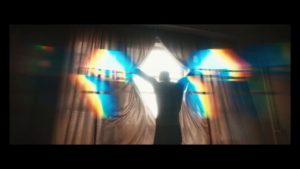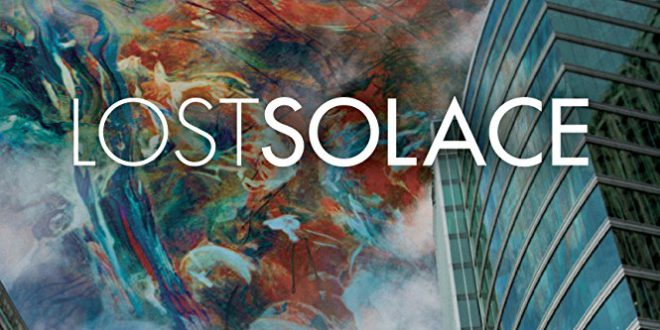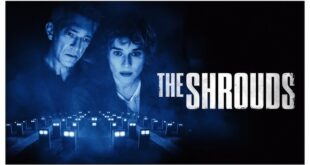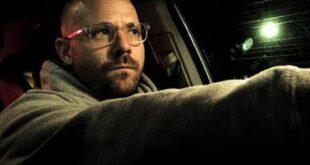Psychopaths have made numerous horrifying onscreen appearances since Alfred Hitchcock’s Psycho (1960). This persona, which often exhibits extreme behavior, eventually evolved into a genre favorite in slasher horror films such as Maniac (1980) and Wes Craven’s 1996 classic Scream. However, films like Silence of the Lambs (1991) and American Psycho (2000) took things to a darker level by daring filmmakers to dive deeper into the mind of the psychopath. Chris Scheuerman takes a slightly different approach in his latest film, Lost Solace.
When Spence Cutler (Andrew Jenkins), a psychopath who’s free from the burden of empathy and guilt, has a chance encounter with a new street drug, he gets a heavy dose of too many feelings. Experiencing an array of emotion at once, he struggles to process this new taste of reality. Spence’s world takes another unexpected turn when he meets Azaria (Melissa Roxburgh: Sorority Murder, Leprechaun: Origins), the daughter of a wealthy businessman.
While Azaria remains oblivious to Spence’s psychopathic tendencies, her brother, Jory (Charlie Kerr), sees straight through his façade. Rather than warn his sister, Jory, who is pretty unbalanced as well, enlists the help of Spence to kill his father to receive his inheritance sooner. However, as the drug remains in his system and continues to invoke sporadic effects, Spence is pulled two different directions while facing the task at hand.

While implementing a very interesting story with subtle reminiscence of 2011 hit thriller Limitless starring Bradley Cooper, Lost Solace takes an interesting approach to portraying the mind of a psychopath. Rather than characterize Spence as an emotionless serial killer, a much less extreme angle is taken, making Spence someone you could see yourself meeting in every day life. While Jenkins gives a commendable performance for such a unique role, the film could have benefited strongly from deeper character development.
Another direction that could have taken Lost Solace to a whole new level would have been the addition of a longer timeline and Spence procuring a small supply of the drug that caused him to begin feeling guilt and empathy. His relationship with Azaria seems to be a bit rushed and a one-time use of a drug that seemingly has a permanent effect is a little far-fetched. However, another way this small problem could have been remedied could have been through further explanation of the drug itself.

Despite these minor complaints, Lost Solace has great psychedelic imagery that is fitting for the story. The use of symbolism throughout the film to reflect the gradual change in Spence is clever and adds substance to the feature. The title even holds some interpretive meaning. Solace, meaning comfort, seems to reflect Spence’s loss of detachment from reality, a place where he felt comfortable and secure.

Alongside Jenkins, helping to drive the film are the equally impressive performances of Roxburgh and Kerr in their supporting roles. Roxburgh is great as an unsuspecting girlfriend who begins to discover what her boyfriend actually is and Kerr is outstanding as an unhinged former mental patient. However, it is Michael Kopsa in his portrayal of the wealthy father, Chuck, who will make you hate his character until the bitter end.

The film’s shortcomings aside, fans of indie sci-fi thrillers that explore the psyche of a psychopath will appreciate Lost Solace. While it is no American Psycho, the film holds enough originality and substance to make it a worthwhile watch.
 PopHorror Let's Get Scared
PopHorror Let's Get Scared




